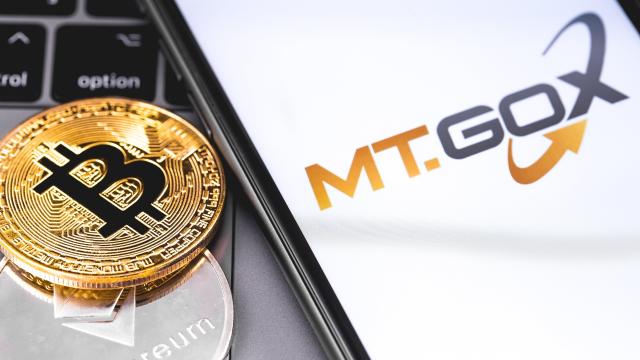The Department of Justice unsealed an indictment Friday that claims to identify the two hackers who brought down the notorious Mt. Gox cryptocurrency exchange more than a decade ago.
Popularly remembered as one of the first major crypto exchanges to buckle under the weight of theft and financial mismanagement, Mt. Gox was hacked in 2011, leading to the loss of some 647,000 bitcoins. Not long afterward, the company imploded, and its former CEO was arrested and charged with fraud and embezzlement. At the time, Mt. Gox was the largest cryptocurrency exchange in the world, and its downfall sent painful shockwaves through what was then a relatively young crypto community.
Since then, the identities of the hackers responsible for the massive theft have remained a secret, but, according to the unsealed court documents, the culprits have now been identified: Alexey Bilyuchenko and Aleksandr Verner, two Russian nationals, are accused of masterminding the gargantuan digital heist. According to the indictment, in 2011 Bilyunchenko, Verner, and unnamed co-conspirators gained access to a web server where Gox had stored its users’ assets. It’s unclear how Bilynchenko and Verner obtained this illicit entry, but prosecutors say they used it to transfer the bitcoins from users’ wallets into their own — a haul that, today, would have netted them $US17.2 billion. Afterwards, the duo allegedly spent several years conspiring to launder the money through an unnamed bitcoin brokerage service based in New York.
“As alleged in the indictments, starting in 2011, Bilyuchenko and Verner stole a massive amount of cryptocurrency from Mt. Gox, contributing to the exchange’s ultimate insolvency,” said Assistant Attorney General Kenneth A. Polite, Jr., after the indictment was unsealed. “These indictments highlight the department’s unwavering commitment to bring to justice bad actors in the cryptocurrency ecosystem and prevent the abuse of the financial system.”
Friday’s announcement does not mention the whereabouts of the two men, whether they’re in custody, or if the government has plans to arrest them.
The BTC-e exchange
In addition to being accused of wiping out Mt. Gox, Bilyuchenko is also allegedly responsible for having helped operate a shady crypto exchange of his own making. Federal prosecutors claim the Russian national used money that was stolen from Gox to help set up BTC-e, a now-defunct exchange that, in its day, was reputed to be massively corrupt. Founded in California in 2011, BTC-e would swiftly go on to become one of the foremost online financial hubs for cybercriminals and shady digital actors, prosecutors allege. On Friday, officials referred to BTC-e as having been “one of the primary ways by which cyber criminals around the world transferred, laundered, and stored the criminal proceeds of their illegal activities.” The U.S. Justice Department seized the BTC-e website and all of its funds in 2017, leading to its closure.
For his role in running BTC-e, Bilyuchenko has been separately charged in a California court case with conspiracy to commit money laundering and operating an unlicensed money services business.
An ongoing financial disaster
After its founding in 2010, Mt. Gox was — weirdly enough — initially a platform centred around the trading of the collectible card game Magic: the Gathering, but it would later pivot to crypto. It enjoyed an initial growth spurt, going on to a brief stint as the single largest cryptocurrency exchange on the web. By its peak just before the hack, the exchange — which was based in Japan — was responsible for some 80% of cryptocurrency trades in the world at the time.
After getting hacked and suffering a slew of accusations of fraud and mismanagement, the exchange officially collapsed and filed for bankruptcy in 2014, leading to massive losses for the platform’s approximately 24,000 users. Mark Karpelès, the exchange’s CEO, was considered a prime suspect in the disappearance of users’ money and was arrested in Japan in 2015 and charged with fraud and embezzlement. In 2019, a Japanese court handed Karpelès a suspended sentence and acquitted him of the embezzlement charge, although they found him guilty of having fraudulently altering the exchange’s data to inflate the appearance of its holdings.
Since then, Mt. Gox has been considered a canary in the digital asset coal mine — a disaster that presaged a veritable avalanche of similar collapses that would plague the crypto industry in the decade to come. Unfortunately, as you might be able to tell from the FTX fiasco, the crypto world never learned its lesson.
